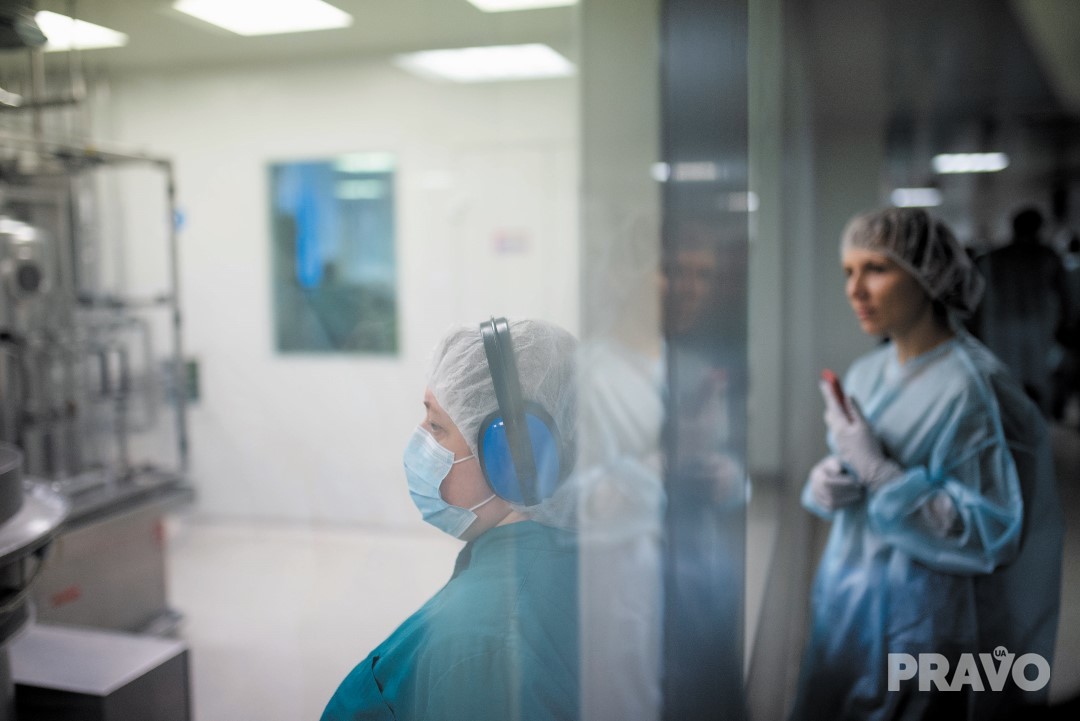Date of publication: 15 April 2025
Yana Trynova, Attorney, Doctor of Laws, Professor
Source: Yurydychna Praktyka
Ukraine has relatively liberal surrogacy legislation, which ensures the rights of potential parents to a child born through a surrogacy program. Additionally, Ukraine permits the use of some diagnostic procedures that are prohibited in other jurisdictions, which are performed in the zygote formation stage (which is the cell formed by fusing the male and female gametes). This procedure significantly reduces the chances of a child being born with physical disabilities or with fetal abnormalities.
Prospective parents, however, remain subject to the civil laws of their native countries while in Ukraine. They therefore fall under their country’s national law. The simultaneous exposure to multiple legal systems complicates the legal management and coordination of surrogacy programs by Ukrainian medical institutions and intermediaries. Additionally, it involves considerable legal risks, including the possibility of criminal liability, especially when different stages of the program are implemented across multiple jurisdictions.
Here is a typical scheme for surrogacy programs with a foreign element (usually used in “gray” schemes):
conclusion of a surrogacy agreement between the surrogate mother and the intended (genetic) parents in a jurisdiction such as Armenia, the United Kingdom, Ukraine, Georgia, Greece, or any other country whose legislation permits such agreements on terms suitable for both parties to the agreement;
fertilization process (in vitro fertilization (IVF)) may take place in another country. However, IVF is legally recognized as a method of fertility treatment. Consequently, it is essential to comply with the legal requirements when using this procedure. Medical documentation confirming an infertility diagnosis issued by a recognized healthcare facility is required, unless the chosen jurisdiction does not require it. These legal prerequisites must be met in order for surrogacy arrangements to be legal. Violating such provisions could result in a violation of the procedure for concluding an agreement regarding the child, which could potentially lead to criminal charges (!);
prenatal care may be provided in an entirely different country – for example, in the surrogate mother’s country of citizenship. Changing the surrogate mother’s place of residence is not, by itself, an offence. However, such relocations are often used to conceal other legal offences – for instance, facilitating the birth of a child for single persons or same-sex couples, where such arrangements are prohibited under the laws of the surrogate mother’s country of citizenship, the intended parents’ country, or the jurisdiction where the surrogacy agreement was concluded.
birth of the child may take place in yet another country. Typically, healthcare institutions do not assess or verify the legal status of the mother and child at the time of delivery; such births are treated as standard deliveries, resulting in legal consequences aligned with local laws. In countries where surrogacy is either prohibited or unregulated, there is generally a presumption that “the legal mother is the woman who gives birth to the child.” In such cases, if the country of birth prohibits surrogacy or lacks a legal framework for regulating it – or if the surrogacy agreement was not executed in accordance with the applicable legal requirements – the genetic parents may find themselves legally dependent on the surrogate mother’s notarized renunciation of parental rights and the transfer of full custodial rights to one of the genetic parents (usually the father on the basis of genetic relationship with the child). It creates considerable legal risk, including the possibility that the surrogate mother could blackmail the potential parents or assert her maternal rights due to emotional attachment. This risk is heightened if the surrogate mother develops maternal instincts following childbirth. Notably, standard childbirth protocols – such as allowing skin-to-skin contact or breastfeeding – may apply in these cases, since the delivery is not formally recognized as part of a surrogacy arrangement. Despite the fact that the child is not biologically related to the surrogate mother, such contact can trigger strong hormonal and psychological bonds.
For her part, the surrogate mother also faces significant risks – she may be left without the financial compensation promised under the contract and burdened with a child who is not biologically hers. Furthermore, genetic parents might have trouble obtaining legal recognition of parenthood and crossing borders with the child if their country of citizenship prohibits surrogacy programs.
Criminal case materials indicate that such complex legal arrangements in surrogacy programs often arise in attempts to circumvent the law or exploit existing legislative loopholes.
As a rule, under such conditions, the organizers of surrogacy programs (healthcare facilities, intermediary agencies, etc.) may be charged with the following criminal offenses: Article 149(3) of the Criminal Code (“Human Trafficking”), Article 190 of the Criminal Code (“Fraud”), Article 209 of the Criminal Code (“Legalization (laundering) of the proceeds of crime”), Article 212 (“Evasion of taxes, duties (mandatory payments)”), Article 366 of the Criminal Code (“Official forgery”), Article 358(4) of the Criminal Code (“Forgery of documents, seals, stamps and forms, sale or use of forged documents, seals, stamps”), Article 369 of the Criminal Code (“Offer, promise or provision of unlawful benefit to an official”), Article 115 of the Criminal Code (“Premeditated murder”), Article 134 of the Criminal Code (“Illegal abortion or sterilization”), etc. The latter two offenses are usually committed to conceal an illegal surrogacy program.
Let’s look at typical criminal situations.
Situation 1: A couple applying for participation in a surrogacy program does not have a medical document confirming the indications for a surrogacy program or this diagnosis is not confirmed during an examination in Ukraine. By the way, this situation may also arise for a “Ukrainian” couple.
In order to participate in a surrogacy program, spouses must have a corresponding diagnosis!
In such cases, the primary violation typically involves the falsification of medical documentation concerning the wife’s diagnosis. In most cases, this type of falsification is carried out by an official, such as a doctor or a group of doctors, and may be a criminal offense under Article 366 of the Criminal Code of Ukraine (“Official Forgery ”). However, considering that the forged document is intended for further use and is in fact used – with at least one of the prospective parents being aware of its falsified nature – the act also contains elements of a criminal offense under Part 4 of Article 358 of the Criminal Code of Ukraine (“Forgery of documents, seals, stamps and forms, and sale or use of forged documents, seals, stamps”). Such offenses are frequently committed in collaboration, which can lead to a more serious classification of the act and/or a harsher punishment for those involved.
Related criminal offenses typically include: “Acceptance of an offer, promise, or receipt of an undue benefit by a public official” (Article 368 of the Criminal Code of Ukraine) – most often committed by healthcare professionals, and “Offer, promise, or provision of an undue benefit to a public official” (Article 369 of the Criminal Code of Ukraine) – usually committed by the patient.
Healthcare professionals who were unaware of the use of forged documents in the course of their job should not be held criminally liable. It is assumed that patient documents are authentic and legitimate in civil legal relations because the presumption of good faith applies. Medical documentation issued by another healthcare provider is not legally obligated to verify a diagnosis’ accuracy.
Situation 2: The intended parents are citizens of a country where surrogacy is prohibited and the legal parentage of children born through such programs is not recognized.
In such cases, there are typically no violations of the Procedure for the Use of Assisted Reproductive Technologies established under Ukrainian law. Therefore, the surrogacy program may be entirely legal under Ukrainian law. However, the legalization of the child’s status and the subsequent entry into the country of the genetic parents may present significant challenges. Legally recognizing such a child and bringing him/her into the country of citizenship of his/her genetic parents will be difficult.
Moreover, in some countries where surrogacy is prohibited, criminal liability has been established for the violation of this prohibition (the Republic of Italy), which means a high probability of criminal prosecution of the genetic parents in their home country and removal of the child to an orphanage (criminal case 2904/2015 R.G. on the fact of changing marital status under Articles 110 and 567, paragraph 2 of the Criminal Code of the Italian Republic (providing false information for entry in the civil status certificate of a newborn).
In Spain, since 2019, due to changes in the legislation governing reproductive technologies and surrogacy, legislative amendments have introduced clearer and more stringent rules for maintaining the Spanish Civil Registry, particularly with respect to children born abroad through surrogacy. According to Clause 2 of the Instruction of the General Directorate of Registers and Notaries No. 2367 dated 18 February 2019, which governs the registration of paternity in cases of surrogacy, applications for the registration of paternity in the Consular Civil Registry for children born after the issuance of this Instruction are not considered unless accompanied by a final and binding decision of the competent judicial authorities in the country of birth confirming legal parentage.
In such situations, it is advisable to refer to the judgments of the European Court of Human Rights in Mennesson v. France (Application No. 65192/11) and Labassee v. France (Application No. 65941/11).
There are a variety of criminal risks and related legal situations, which in practice may include unusual cases that haven’t been thoroughly examined. This article presents an overview of these risks and situations, but it is not exhaustive.
Due to the constant changes in domestic and international regulation, it is crucial to invest in qualified legal assistance when planning and executing surrogacy programs. Such a complex field can only be handled by an experienced legal expert.

